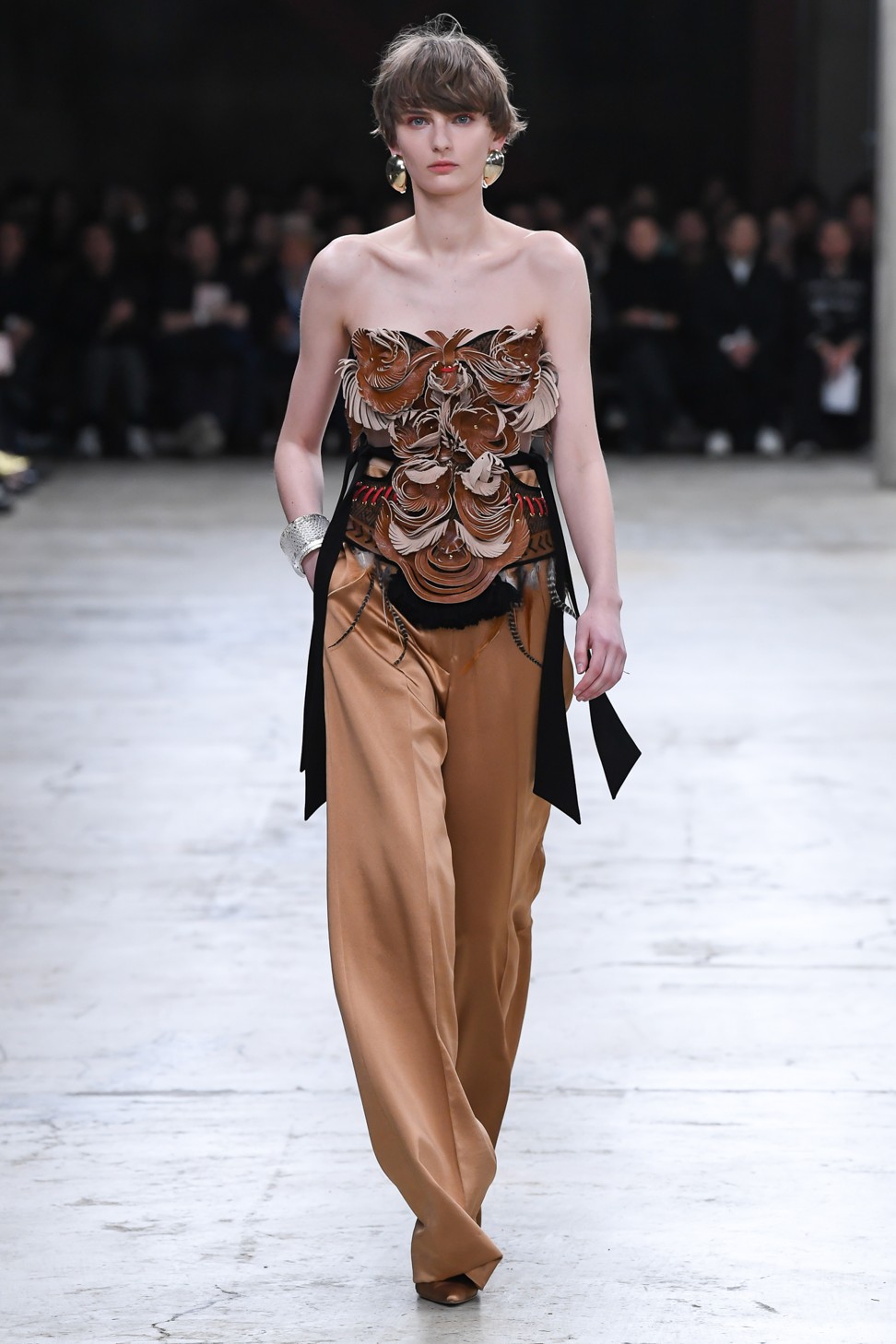
Women’s brands return to Tokyo Fashion Week, with handmade detailing and rich textures the biggest trends
After several seasons of menswear lines dominating the catwalks, female designers made a welcome return with stunning collections from newcomer THE Dallas and rising stars Akiko Aoki and Yohei Ohno
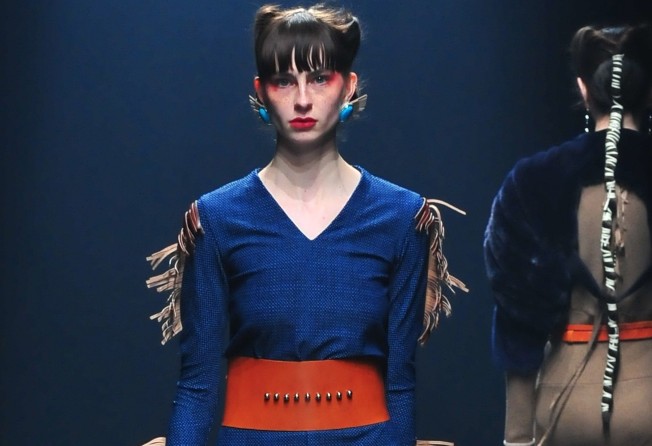
The latest autumn season of Tokyo Fashion Week was its biggest ever, with nearly 60 shows on the calendar. Brands were showcased from not only across Japan, but also from South Korea, Indonesia, and Europe during the six-day event.
It was the fourth season with Amazon as the title sponsor, and the e-commerce giant continued to draw crowds with its At Tokyo programme, which supports brands being shown that normally would not have taken part in the event.
This season, it chose labels including Fashion Prize of Tokyo winner Mame Kurogouchi, newcomer TTT_MSW, and LVMH Prize finalist Ambush. It also worked with popular streetwear brand Neighborhood on a music event, which included a live performance from German band Atari Teenage Riot.
After several seasons of menswear brands dominating the catwalks, women’s brands made a comeback in Tokyo, with newcomer THE Dallas and rising stars Akiko Aoki and Yohei Ohno some of the most talked-about collections. Trends this autumn included handmade detailing, rich textures, unconventional styling, and oversized, often sculptural silhouettes.
Here are some of the highlights of the season.

Mame Kurogouchi
One of the hottest tickets was also one of the earliest shows of the week, held on Monday evening at Amazon Fashion’s newly completed imaging studio, the largest in the world. Maiko Kurogouchi is the designer behind Mame Kurogouchi, or simply Mame, as it is known by its legions of fans in Japan. She showed an abbreviated autumn collection at a presentation in Paris, but her Tokyo show was much more complete, with nearly twice the number of looks.
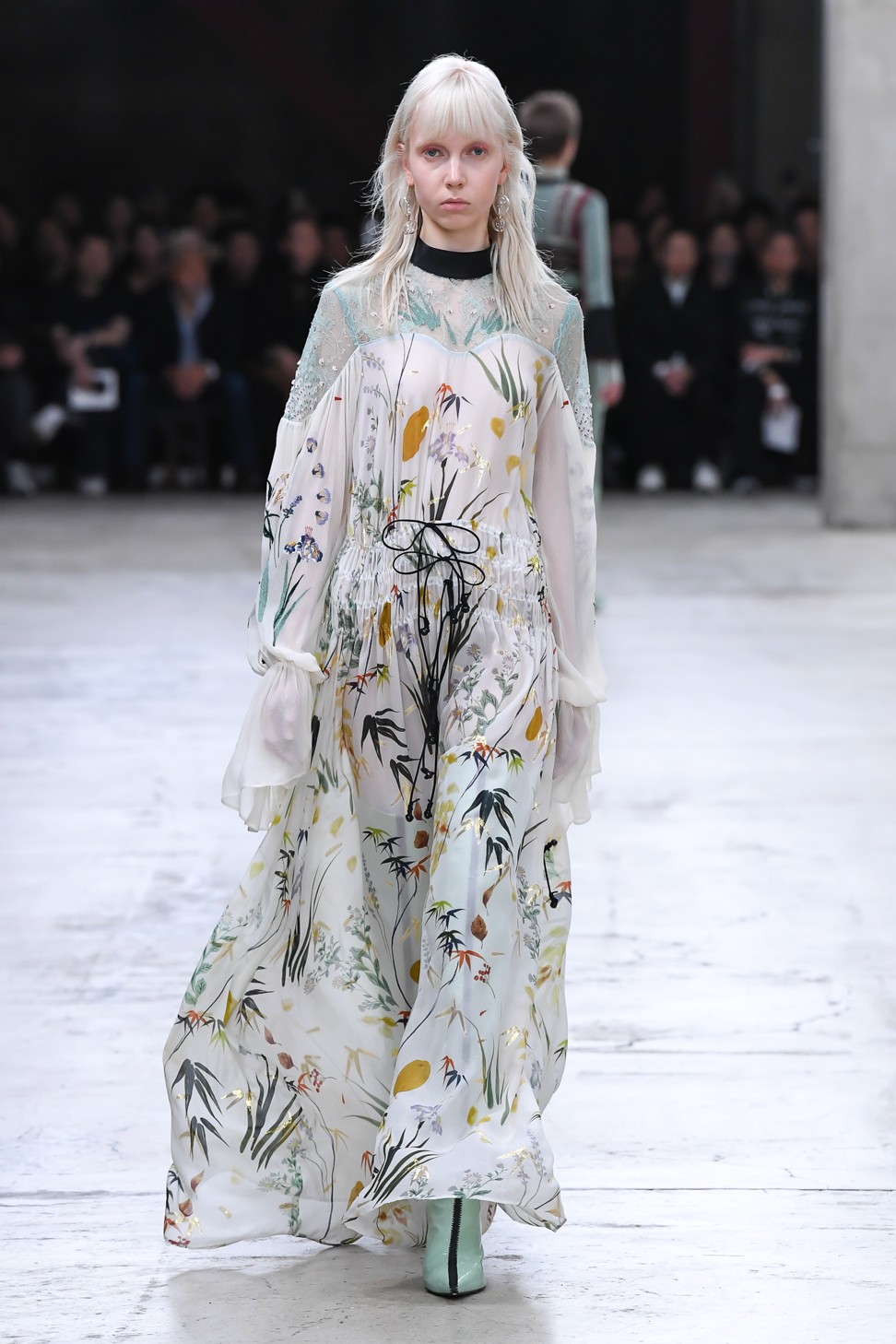
Kurogouchi incorporated crafty elements and inspiration from the natural world in her conservatively chic dresses, turning out chiffon maxi dresses with botanical prints, fur-trimmed coats, and lots of richly textured, fringed knits. Her signature clear vinyl handbags made several appearances, and a striking tube top of leather pieces that had been cut and moulded into intricate circular patterns was a stand-out.
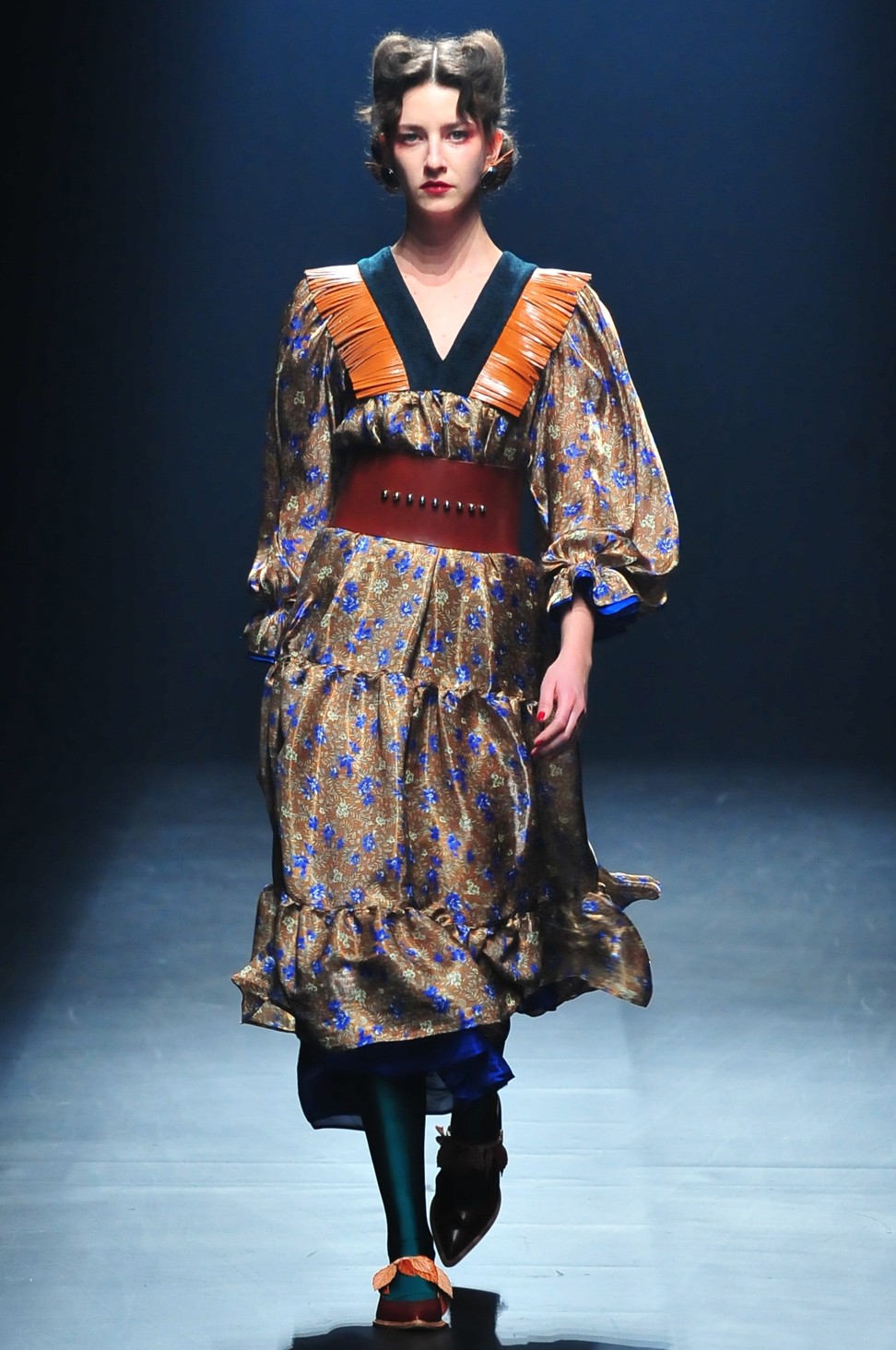
THE Dallas
The label Fumie Tanaka launched just two years ago and is already on its way to becoming a favourite among well-dressed Japanese women. Despite not even having a website, it has more than 30,000 followers on Instagram and is carried by some of Japan’s top retailers, including United Arrows, Beams, and Hankyu department store. Tanaka staged her first show this season, further raising her profile and cementing her position as a rising star of Tokyo’s fashion scene.
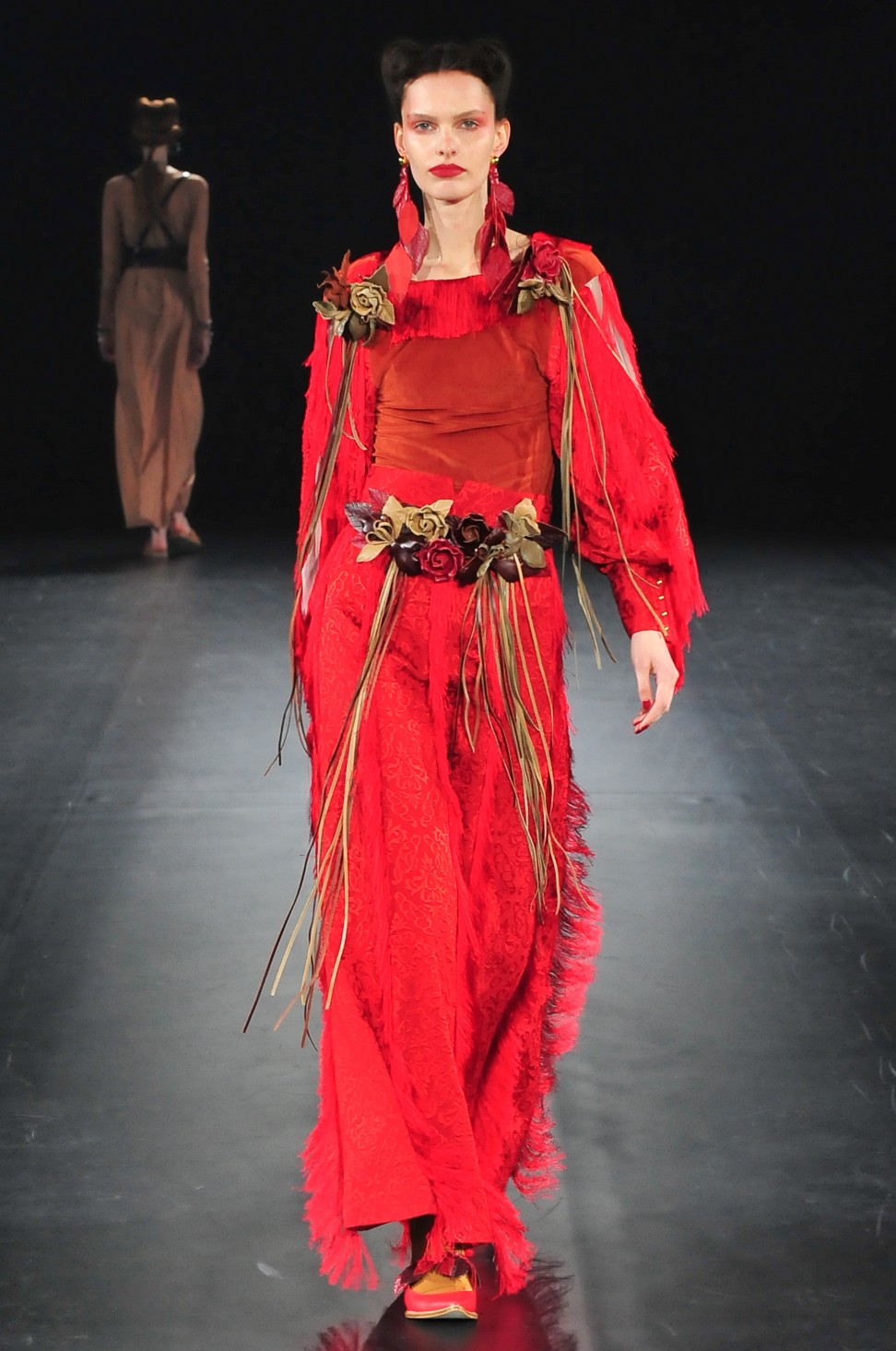
Tanaka’s models were dressed in everything from long, hippie-esque floral satin frocks to sheer lurex knit dresses slit up to the hip. She employed a subtle sex appeal, pairing skimpy hot pants and cutaway trousers with spandex thigh-highs or tights, and a sheer lace top with plush, baggy pants. Fringe trim and textured knitwear were two common themes, and Tanaka’s floral sculpted leather belts, necklaces and other accessories dressed up some of the more simple dresses.
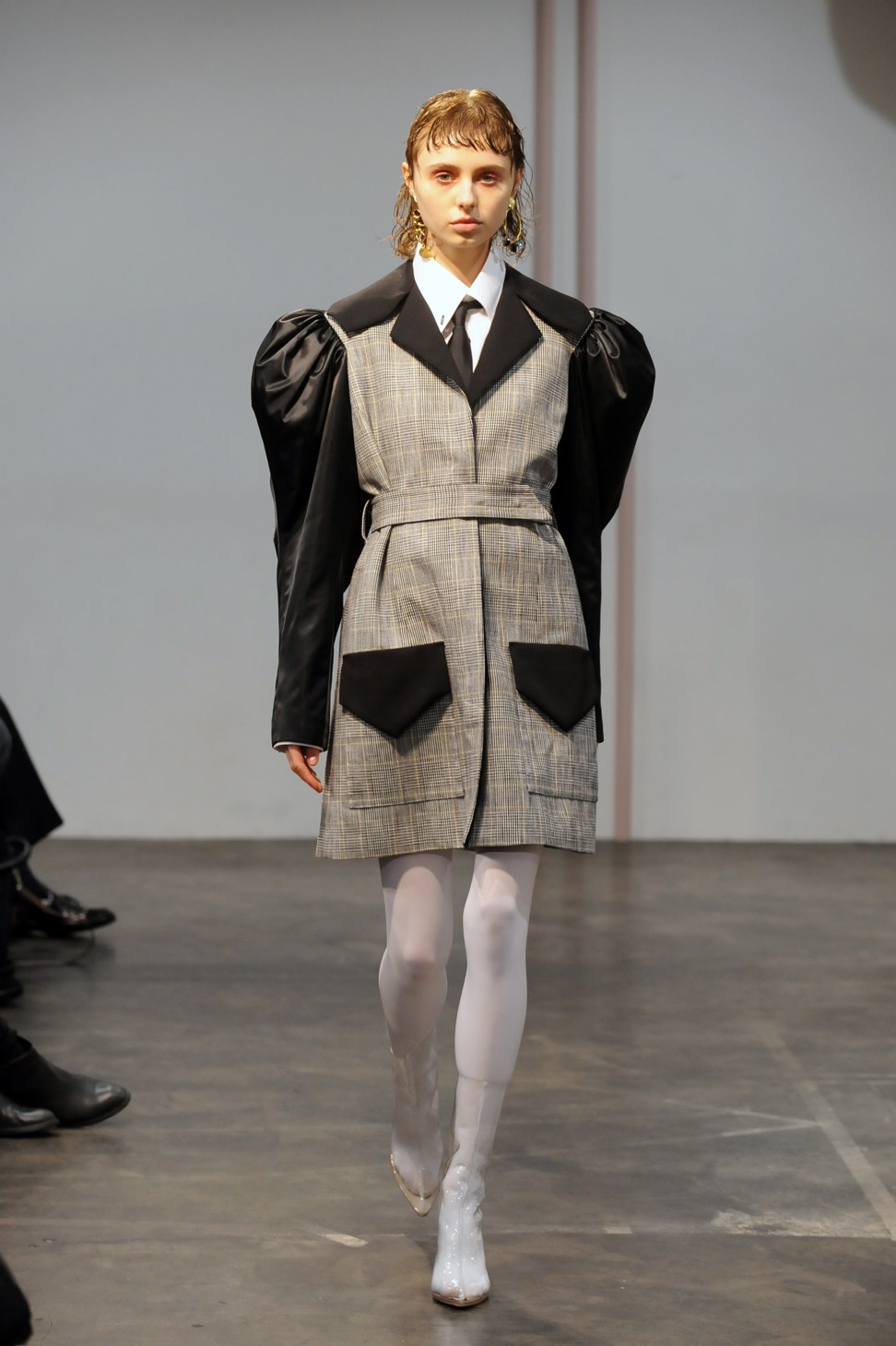
Akiko Aoki
Three seasons ago the former assistant to Mikio Sakabe struck out on her own and ever since then she is been considered someone to watch during the Tokyo shows. When she started taking part in Tokyo Fashion Week just over two years ago, Akiko Aoki had the star collection in the Tokyo New Age grouping of young, emerging designers. Her unique mix of feminine silhouettes with asymmetric, almost sculptural detailing is the epitome of what Tokyo’s young fashionistas want right now.
This season, Aoki made the unusual but very business savvy decision to have her models change into their different looks right on the catwalk.
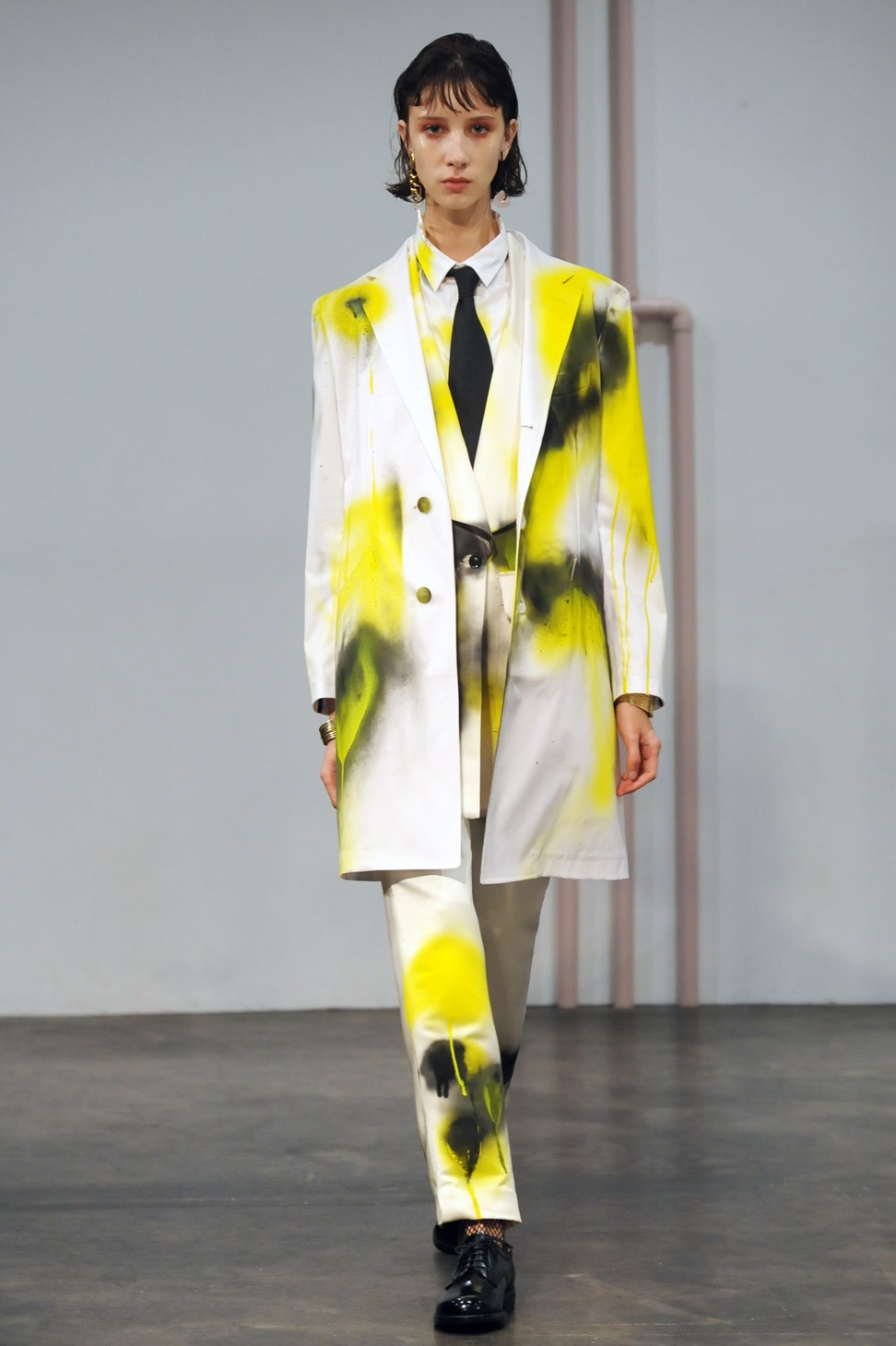
This gave the audience a better understanding of her versatile pieces, which can sometimes seem complicated to wear. Her collection was heavy on menswear influences, but these were not your standard pinstriped pantsuits. Instead she showed cold-shoulder shirts that doubled as dresses, jackets with exaggerated puff sleeves or strategic cut-outs, and one of her familiar bustier tops in suiting fabric. The one pop of colour came from a white three-piece suit spray painted in yellow and black to resemble graffiti.
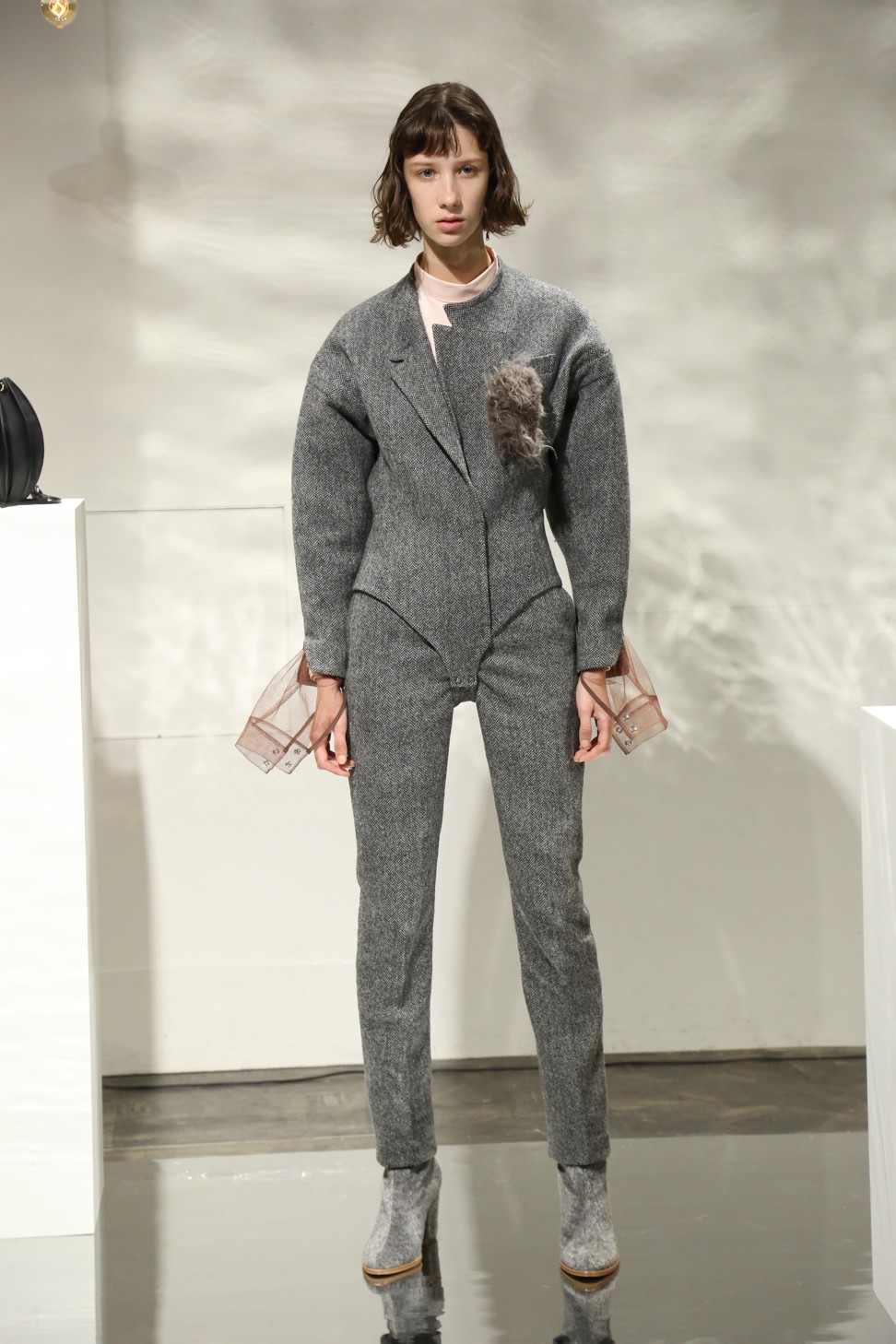
Yohei Ohno
An alumnus of both Bunka Fashion College in Shinjuku, Tokyo, and Nottingham Trent University in the UK, Yohei Ohno was selected to participate in London’s Graduate Fashion Week in 2014, and launched his eponymous label soon after. Now in his third season showing during Tokyo fashion week, his line is stocked by Isetan Shinjuku, among other stores.
His previous collections were known for unconventional, often metallic materials, Ohno decidedthis time to place more of an emphasis on comfort, employing natural fabrics such as wool and raw denim. But his typical sculptural shapes were still on display, the most eye-catching being voluminous shrugs and tank tops with long, curtain-like panels in front. He also made playful styling choices, showing tweed bodysuits alone over tights or layered on top of trousers.
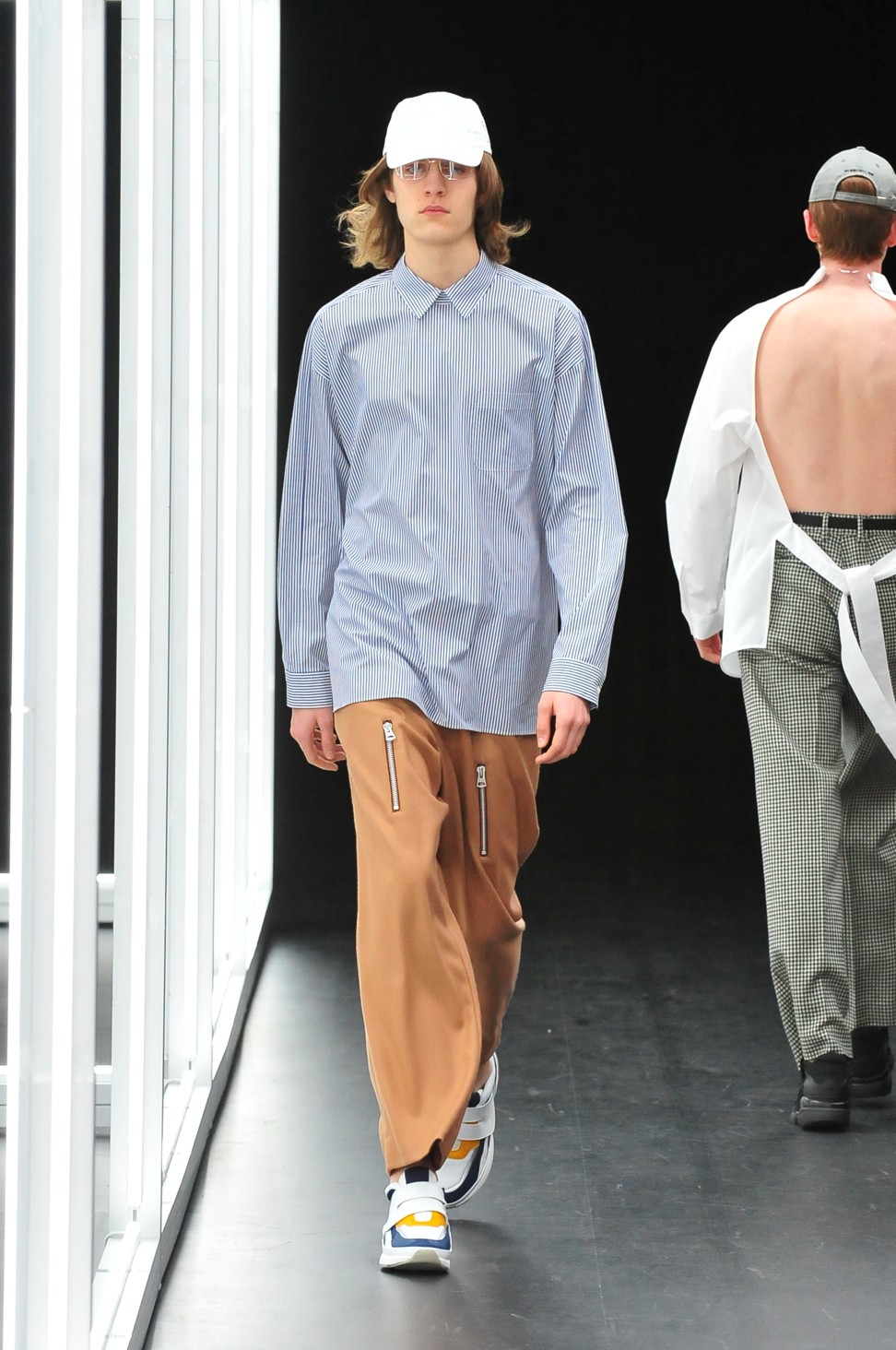
Mistergentleman
Not too long ago, directional men’s brands used to dominate Tokyo’s catwalks. But as many of the strongest either began presenting overseas or stopped doing shows altogether, the city’s well-dressed men have been under-represented. For this reason, Mistergentleman’s return after a two-year hiatus was much anticipated, and it did not disappoint.
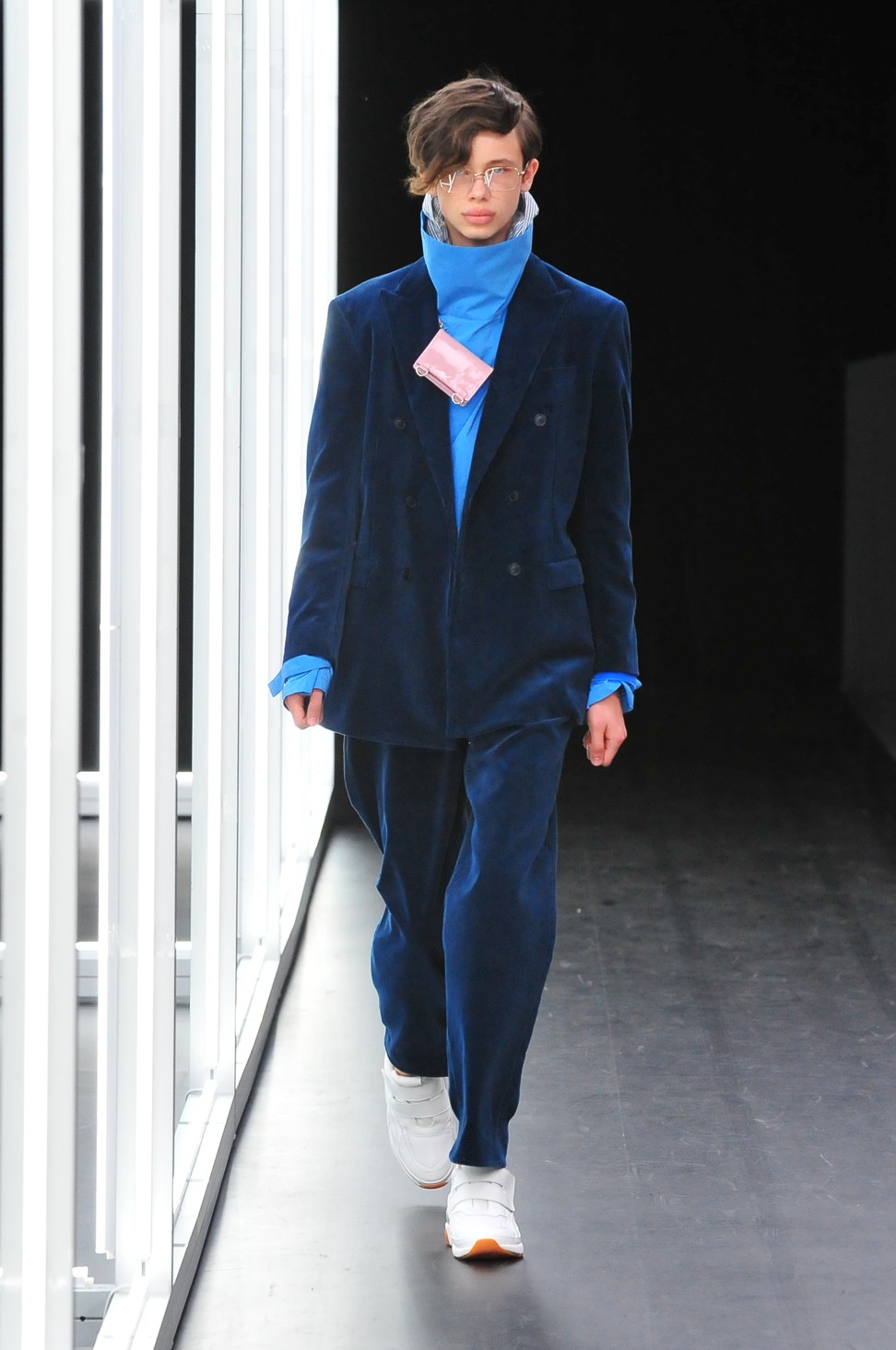
Takeshi Osumi and Yuichi Yoshii are adept at striking the perfect mix of casual and tailored clothing. Velour suits and checked, double-breasted sport coats shared the catwalk with shearling blousons, puffer jackets, and windbreakers. The designers reinvented standard pieces such as trench coats and white shirts.
Their inventive styling choices made for a great show, but there were plenty of items that on their own would stand out while being wearable.